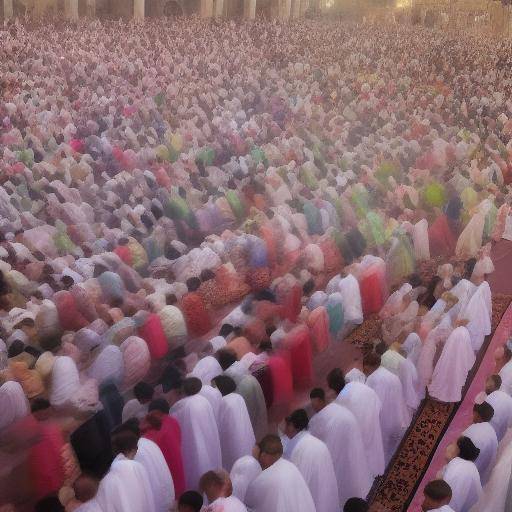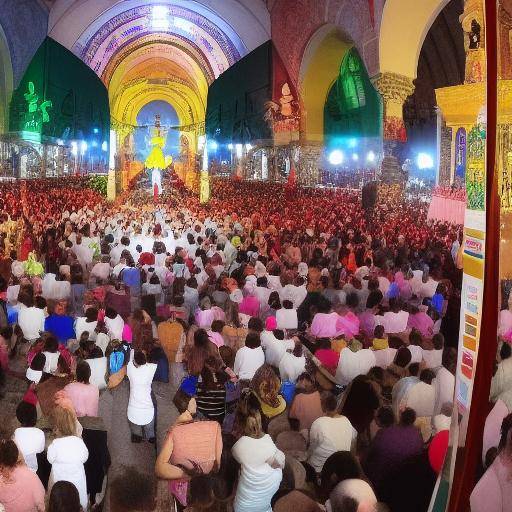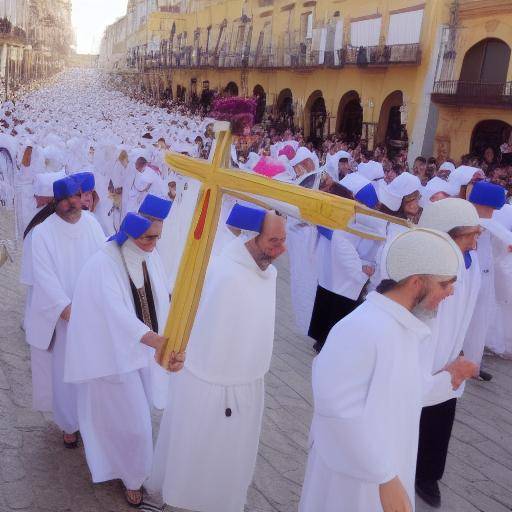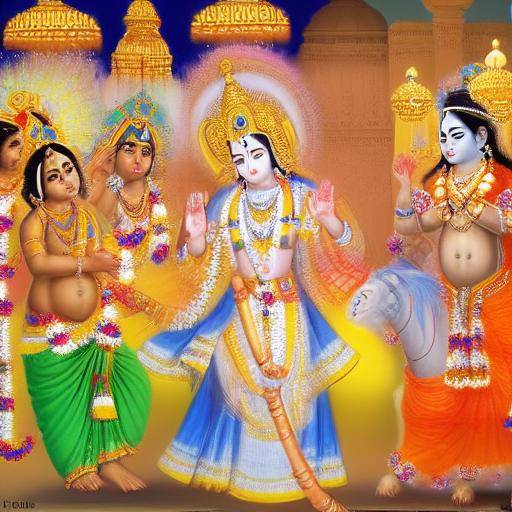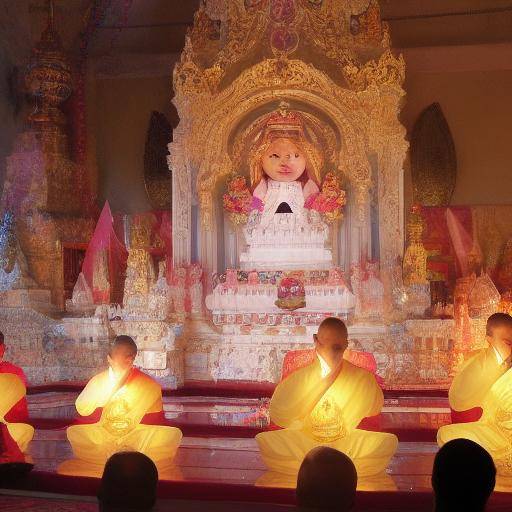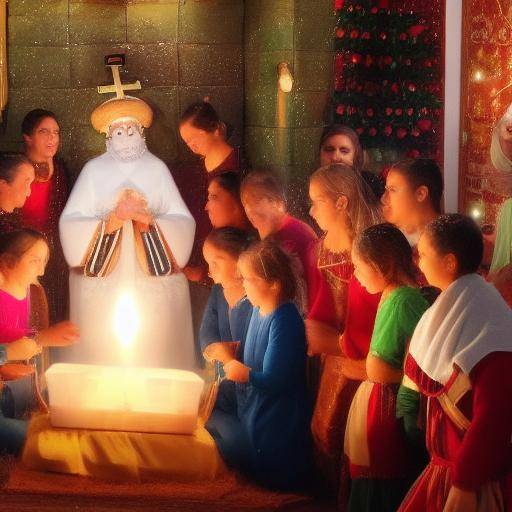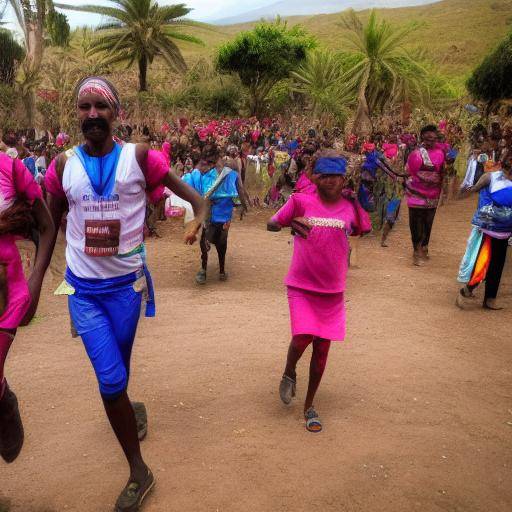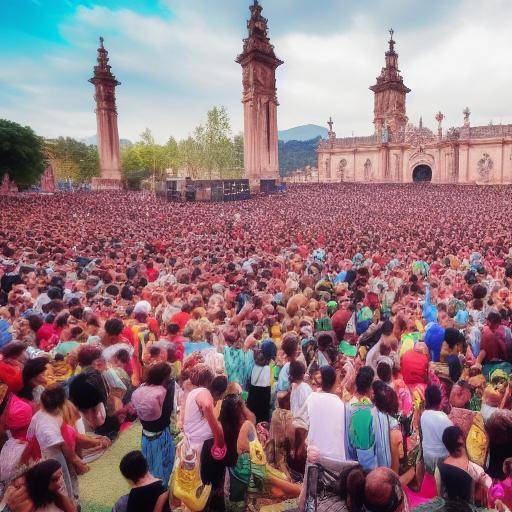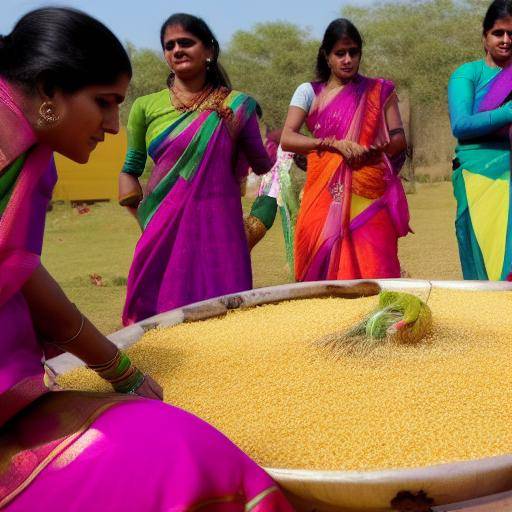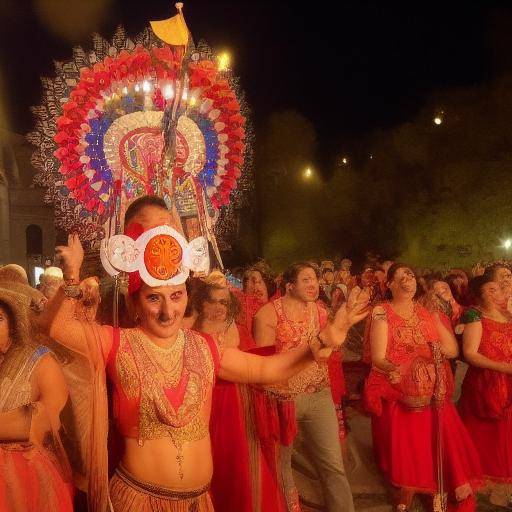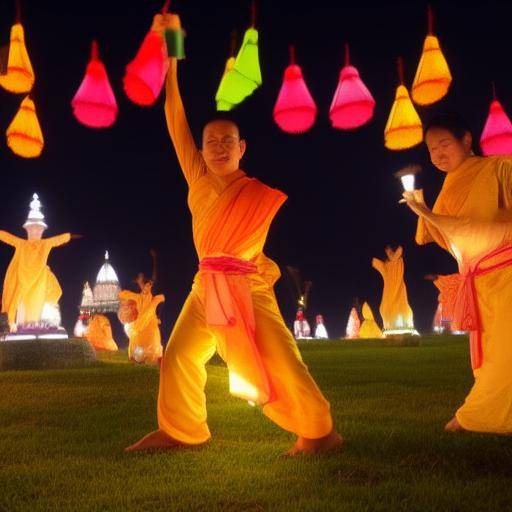
The feast of Wesak is a celebration of great significance in Buddhism, especially in Asia, where millions of followers commemorate the birth, enlightenment and death of Buddha Gautama. In this article, we will explore in depth the feast of Wesak, its relevance in the context of religious festivals and its impact on Buddhism in Asia. From its history and meaning to its influence in contemporary society, this festival offers us a unique perspective on spirituality and the Buddhist community.
Introduction
The feast of Wesak, also known as Vesak, is a fundamental celebration in the Buddhist calendar. During this festival, the followers commemorate the birth, enlightenment and death of Siddhartha Gautama, the original Buddha. As we plunge into this festival, we will explore its contemporary history, meaning and practices, as well as its impact on the Asia region, where Buddhism has a deep and meaningful presence.
History and Background
The feast of Wesak has profound roots in the history of Buddhism and its teachings. It dates back to the sixth century BC, when Siddhartha Gautama was born in Lumbini, a region on the border between what is now Nepal and India. By reaching enlightenment under a Bodhi tree, known as the Illumination Tree, Gautama became Buddha. The feast of Wesak arises as a way of commemorating his life, teachings and legacy.
Evolution of the Festival
Over the centuries, the Wesak festival has evolved in different regions, adapting to local traditions and beliefs. From colorful parades to rituals of offerings and meditation, the Wesak festival has acquired a rich diversity of manifestations over time. Buddhist communities in Asia and around the world have preserved and enriched these traditions, keeping alive the essence of the festival.
Deep analysis
Wesak's holiday represents a moment of reflection, compassion and spiritual renewal for millions of followers of Buddhism in Asia. Through practices such as meditation, the recitation of teachings and the realization of altruistic acts, the followers seek to follow the steps of the Buddha and cultivate virtues such as goodness, compassion and wisdom in their daily lives. This festival also has a significant impact on society, promoting harmony, generosity and service to others.
Benefits and Challenges
Wesak's festivities offer many benefits to the followers of Buddhism, providing space for deep reflection, the cultivation of compassion and community union. However, it also faces challenges in the modern era, where external influences and the evolution of society raise new questions about the preservation and significance of this festive in the contemporary context.
Perspectives and Diverse Reviews
Various currents and schools within Buddhism provide unique perspectives on the Wesak holiday, enriching its meaning and associated practices. From traditional vision to modern interpretations, Wesak's festivities reflect the richness and diversity of Buddhism in Asia, showing how spirituality finds expression in cultural contexts and societies constantly changing.
Exhaustive examination
Wesak's festival transcends its religious meaning to have an impact on multiple aspects of social, cultural and community life in Asia. Their practices and values promote harmony, compassion and respect for life, contributing to the cohesion and well-being of societies where it is celebrated.
Applications and Best Practices
Practices associated with the Wesak festival, such as meditation, generosity and service, offer valuable lessons that transcend religious boundaries. These lessons can serve as inspiration for the promotion of peace, social justice and compassion in all communities, regardless of their beliefs.
Perspectives of Experts and Future Implications
Experts on Buddhism and religious studies have analyzed the impact of Wesak's festive on contemporary society. Their perspectives shed light on the future implications of this holiday in an increasingly interconnected world, stressing the need to preserve their fundamental values and adapt their practices to respond to the challenges and opportunities of the twenty-first century.
Comparative analysis
Wesak festival shares significant similarities and differences with other religious festivals in Asia, enriching the panorama of spiritual traditions in the region. These comparisons allow us to better understand the unique and universal role of the Wesak festival in the broader context of religious festivals and spirituality in Asia.
Practical Tips and Accessible Recommendations
For those interested in exploring the Wesak festival and its values, you can follow certain practical advice that facilitate your understanding and active participation in this transcendental holiday. These tips offer a guide to integrate the values and teachings of Wesak's feast into everyday life, fostering compassion, wisdom and harmony in society.
Industry Perspectives and Expert Reviews
Professionals and academics from various disciplines have provided their views and perspectives on the Wesak holiday, enriching our understanding of its relevance in the social and cultural sphere. Their contributions and analysis show how this festivity remains a beacon of light to understand spirituality and compassion in a constantly changing world.
Case Studies and Applications in Real Life
The impact of Wesak's festivities is evident in numerous examples of its practical application in the daily lives of the followers of Buddhism in Asia and beyond. These case studies offer a detailed view of how the principles and practices associated with the Wesak holiday influence decision-making, interpersonal behaviour and community engagement.
Future Trends and Predictions
Buddhism and the Wesak festival are not immune to the changes and challenges of the modern era. Future trends and predictions related to the celebration of Wesak offer us a vision of the possible evolutions and adaptations that this holiday will experience in response to the current dynamics of society and spirituality.
Conclusion
The feast of Wesak represents a bridge between the past, the present and the future of Buddhism in Asia and beyond. From its roots in ancient history to its influence in contemporary society, this festival remains a beacon of light for compassion, wisdom and harmony in the world.
We hope that this thorough exploration of the Wesak festival, religious festivals and Buddhism in Asia has provided a deeper and enriching understanding of these so significant spiritual and cultural dimensions in the region and the world. May the celebration of Wesak continue to inspire harmony and compassion in all the communities that commemorate it.
FAQs
What is Wesak's holiday?
The feast of Wesak is an important celebration in Buddhism that commemorates the birth, enlightenment and death of Siddhartha Gautama, the original Buddha.
Why is Wesak's holiday so significant?
Wesak's holiday is significant because it marks key events in Buddha's life and offers followers the opportunity to reflect on their spiritual teachings and practices.
How is the Wesak holiday celebrated?
The feast of Wesak is celebrated with religious ceremonies, meditation, food offerings and acts of generosity towards those in need.
Where is the Wesak festival held primarily?
Wesak festival is held mainly in countries with a large Buddhist population, such as Thailand, Sri Lanka, Laos, Cambodia, Burma and Singapore, among others.
What is the impact of the Wesak festival on contemporary society?
Wesak's festival promotes compassion, harmony and spiritual reflection, contributing to the emotional and social well-being of the communities that celebrate it.
How can a non-Buddhist person participate in the Wesak celebration?
Non-Buddhists can participate in the Wesak holiday by showing respect for practices and traditions, and even attending events open to the public to better understand the teachings of Buddhism.
How can we apply the values of the Wesak holiday in our daily lives?
The values of compassion, generosity and wisdom promoted during the feast of Wesak can be applied in everyday life through acts of goodness, understanding towards others and seeking inner harmony.
Through these answers, we hope to have satisfied your curiosity and provided a wider understanding of the Wesak festival and its meaning in the context of Buddhism in Asia.
With this thorough exploration of the Wesak festival, religious festivals and Buddhism in Asia, we hope to have provided an enriching and meaningful vision of these spiritual and cultural dimensions. May this knowledge inspire understanding and respect for the various spiritual expressions that enrich our world.

